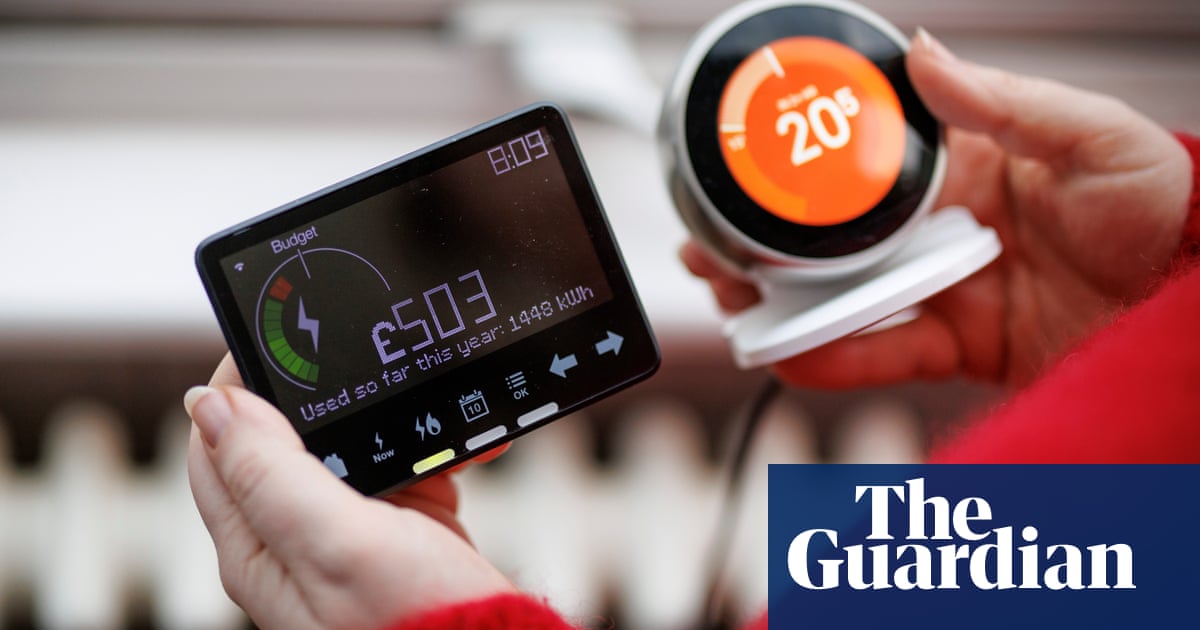Plans to reinstate the winter fuel payment will be undermined if the government presses ahead with mooted cuts to home insulation upgrades, dozens of charities and experts have warned ahead of the forthcoming spending review.
Labour pledged before entering government toprioritise plugging the leaks in the country’s draughty homesas a way of reducing household bills and wasted energy.
The £13.2bn promised for the warm homes plan appears under threat, despite estimates that it would add to economic growth, as the chancellor, Rachel Reeves, seeks swingeing spending cuts to meet her self-imposed fiscal rules.
As the Guardian revealed last week,Reeves is likely to reverse the axing of the winter fuel payment for many older peopleafter months of damaging outcry against the policy. But rumoured cuts to insulation could as much as halve the money on offer for efficiency upgrades.
A group of more than 50 senior figures from socially-focused charities, green campaign groups and housing organisations has written to Darren Jones, the chief secretary of the Treasury, to urge the government to stick to its programme of insulation improvements for older or vulnerable people, and people on low incomes.
Experts say the failure to do so would negate some of the benefits of restoring the winter fuel payment.
James Dyson, a senior researcher for E3G, a green thinktank that helped organise the letter, said: “Reinstating winter fuel payments means nothing if the government doesn’t keep its promise to fix cold, leaky homes. It’s like pouring water into a sieve. The government must keep itsmanifesto pledge of £13.2bn for insulation, which will lower people’s bills permanently and improve their wellbeing.”
Caroline Abrahams, the charity director of Age UK, which is a signatory to the letter, added: “We face an immediate problem of how to ensure older people on low and modest incomes can afford to run their heating this winter, which the government’spotential policy change to winter fuel paymentmay or may not address – but regardless, it’s clear that making older people’s homes more energy efficient is an essential part of the solution longer term. Working on this at the pace envisaged in Labour’s manifesto makes excellent policy sense and would also give older people real hope for the future.”
The warm homes plan could save about 3 million vulnerable households about £220 a year. In its 2024 manifesto, theLabourparty promised £13.2bn in this parliament, made up partly of money already promised by the previous government that was unspent, and an extra £6.6bn.
Research by E3G shows that nearly half a million pensioners could be stuck with high energy bills if the manifesto promise was broken.
The warm homes plan is one of the central planks of the government pledge to bring down energy bills by £300 in this parliament, alongside the move to renewable energy and away from gas, the price of which has been highly volatile. Reeves allocated £3.4bn over three years to the plan in last October’s budget, and further funding is to be considered as part of phase two of the spending review, due on 11 June.
Under the previous government,efforts to subsidise insulation in England and Walesstalled after thefailure of the “botched” green homes grant scheme set up by Boris Johnsonin 2021.
The letter cited research showing 82% of the 300 constituencies with the highest rates of fuel poverty had Labour MPs, and forecasts by E3G showing that delivering on the warm homes plan in full would enhance economic growth, adding 0.8% to the UK’s GDP in this parliament through cost savings and the creation of green jobs in insulation.
E3G also found people with disabilities and older people would be at particular risk if spending on home insulation were slashed. About half of the households insulated by the most recent government scheme contained someone living with a disability, and nearly a third of the households had someone aged 65 or over.
Among the more than 50 organisations signing the letter were: Citizens Advice; Scope; the National Housing Federation; Generation Rent; theEnergyAdvice Helpline; and the National Pensioners Convention.
A government spokesperson said: “The energy shocks of recent years have shown the need to go further and faster to upgrade British homes, making them warmer and more efficient, while bringing down bills. Up to 300,000 households will benefit from upgrades through our warm homes plan this year, rolling out measures like insulation, double glazing, solar and heat pumps.”
